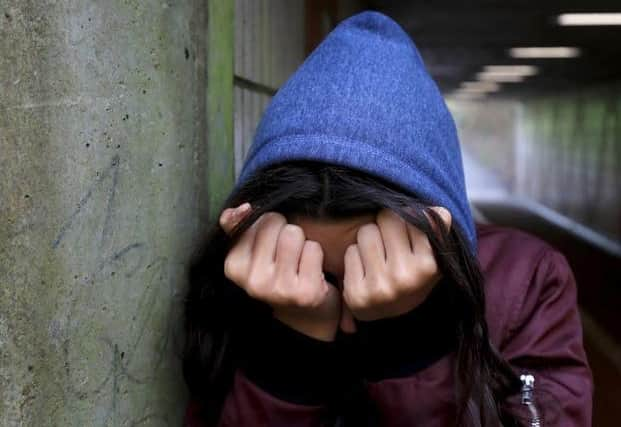Number of children referred to mental health services increases by more than 40% in Milton Keynes
and live on Freeview channel 276
The Children’s Commissioner is urging the Government to introduce an NHS-funded counsellor for every school among fears that thousands of children are being left without support.
NHS digital data shows that in 2019-20, 2,570 under-18s were referred to mental health services across NHS Milton Keynes CCG.
Advertisement
Hide AdAdvertisement
Hide AdThis was a 46% increase on the previous year, when 1,760 children were referred.


However, children are waiting less time to access treatment. The average number of waiting days has fallen from 38 to 17.
Of the total number of children referred to mental health services, 1,535 were seen within six weeks – however 60 children had to wait longer than 12 weeks.
There were also 295 children who saw their referral being closed before treatment.
Advertisement
Hide AdAdvertisement
Hide AdThese children may not have required specialist treatment, they may have been referred to services funded by non-NHS organisations or chosen not to enter treatment.
The data provided does not specify why a referral was closed.
The Children’s Commissioner says there is a lack of ambition in improving children’s mental health services, despite numerous Government announcements.
Anne Longfield, Children’s Commissioner for England, said: “Even before the Covid pandemic, we faced an epidemic of children’s mental health problems in England and a children’s mental health service that, though improving significantly, was still unable to provide the help hundreds of thousands of children required.
Advertisement
Hide AdAdvertisement
Hide Ad“The Government’s plans must include a rocket boost in funding for children’s mental health, to expand services and eliminate the postcode lottery.
“As an absolute minimum, all schools should be provided with an NHS-funded counsellor, either in school or online.”
The data also shows that NHS Milton Keynes CCG spent around £50 per child on mental health services – the national average is £66.
In response to these findings Richard Alsop, Director of Commissioning and Contracting for Bedfordshire, Luton and Milton Keynes Clinical Commissioning Groups outlined the improvements Milton Keynes CCG has made recently regarding children's mental health. He said: “We understand the importance of supporting our children’s mental health and are continually working to improve the NHS services available to them.
Advertisement
Hide AdAdvertisement
Hide Ad"Due to the pandemic, we’ve had to overcome significant challenges but over the last year we have increased mental health spend per child by 18% to £60.40.
"Working in a multi-agency way has allowed us to engage with local schools, a valuable collaboration for coordinating our school-based support initiatives, with 98% of local schools now having a mental health lead and 92% of governing bodies having a mental health champion.
"Although there is still work to do we are confident we are heading in the right direction.”
Across England, 538,564 under-18s were referred to mental health services in 2019-20, 35% more than the previous year.
Advertisement
Hide AdAdvertisement
Hide AdCouncillor Judith Blake, chairman of the Local Government Association’s children and young people board, said: “The pandemic has exacerbated existing mental health problems, particularly for children living in families with lower incomes and whose parents may be experiencing financial difficulties.
“Local councils have a vital role in helping children have mentally healthy childhoods and mental health needs to be at the heart of a holistic approach to overall health and wellbeing.
“Supporting children early on to reduce the need for clinical interventions means more can receive help when they need it, rather than waiting until they are unwell.
“It is vital that effective and evidence-based mental health and wellbeing services and statutory mental health services for children are able to meet existing, new and unmet demand that has built up during the pandemic.”